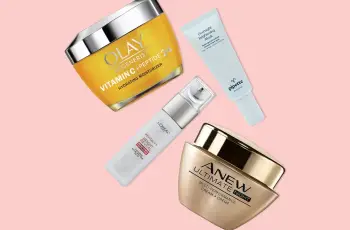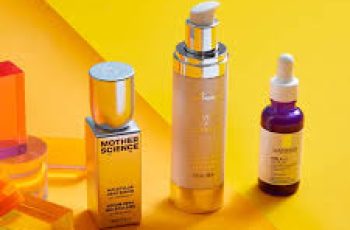
Argan Oil in Skin Care
Argan oil is the best oil to soothe sensitive skin and is used in skin creams for eczema, psoriasis, rashes, dermatitis, skin aging, and rosacea. The best argan oil products are moisturizing anti-inflammatory serums, oils or face creams.
Argan oil is soothing and hydrating because of the fatty acids it contains. Linoleic acid is one of the strongest natural soothing ingredients to look for in oils.
It is a desirable ingredient because it is rich in antioxidant and anti-inflammatory compounds as well as hydrating unsaturated fatty acids and creamy saturated fatty acids.
Argan oil also contains stearic acid – one of the best fatty acids to repair the skin barrier.
In this blog I will tell you why I personally use Argan oil for my Rosacea prone skin. (I’m Baumann Skin Type 4).
The trees the kernel is harvested from are mainly grown in Morocco. The type of argan oil with the most antioxidants is the “first press” from the argan nut. Roasted argan oil has a nutty flavor and is used for cooking or in salads but does not have as much antioxidant activity as the unroasted argan oil.[i]It is the unroasted argan oil that should be used on the skin, not the edible form.
Looking for products with argan oil that are right for you? You can shop by your skin type here.
slide 1 of 1
Nuxe Oils 50 ml Nuxe Huile Prodigieuse Florale Multi-Purpose Dry Oil – Skin Type Solutions
Nuxe Huile Prodigieuse Florale Multi-Purpose Dry Oil
₫
760,000
See Product
Argan Oil Uses in Skin Care Products:
Argan oil is considered an antioxidant, anti-inflammatory, and an occlusive moisturizing ingredient. It is used to treat many kinds of skin concerns such as:
Acne – It helps get rid of the red marks left after pimples clear and is non-comedogenic.
Dry Skin-Has moisturizing fatty acids so is one of the best oils for dry skin. Look for it in barrier repair moisturizers.
Sensitive Skin- Soothing and calming due to the types of fatty acids it contains.
Rosacea- Calms facial redness and soothes stinging skin.
Eczema- In barrier repair moisturizers designed to sooth eczema-prone skin.
Psoriasis- Helps smooth and soothe itchy skin from psoriasis.
Razor rash- Calms razor rash.
Insect repellant – It has camphor and 1,8-cineole in the fruit pulp that keeps insects away.
Shelf Life
Virgin edible argan oil exhibits a longer shelf-life compared to virgin beauty argan oil used topically on skin. When stored at 77°F (25°C), the edible variety can remain usable for up to two years, whereas the topical oil has a significantly shorter shelf-life, lasting only three to four months.
You can keep your argan oil in the refrigerator to extend the shelf life.
Benefits
Argan oil has many unsaturated fatty acids.These help give it powerful skin benefits. For example, linoleic acid reduces inflammation. Many of these fatty acid lipids in Argan Oil hydrate skin by strengthening the skin barrier and providing an occlusive effect.
It also is an emollient that smooths the skin’s surface, helping it reflect light and make the skin glow.
2 aging people with a skin aging icon
For wrinkles
Skin Aging- Argan oil has antioxidants that neutralize free radicals and help protect the skin from aging.
Side Effects
It is an oil, so can make oily skin look shiny. or greasy. It is best for dry skin types. Oily skin types may think it feels too heavy on the skin
Clogged Pores and Comedones
Argan oil does not clog pores so is not found on lists of comedogenic ingredients.
Skin allergy
It can rarely cause skin allergy and should be avoided if you have a tree nut allergy. A single case of anaphylaxis was reported in 2010 in a tree nut allergic individual. (19)
Safety
Argan oil is considered a safe and clean beauty ingredient. There are organic forms of argan oil, which comes from trees in Morocco.
For centuries, the Amazigh population of southern Morocco has safely incorporated Argan oil into their diet and utilized it as a topical cosmetic agent. There is no evidence to suggest any association with acute or chronic toxicity.
There are no safety risks for argan oil.
The EWG rates it as a 1 and the CIR review stated it was safe. (25).
Cancer
Argan oil is not associated with any risk of skin cancer. In fact, its antioxidant and anti-inflammatory properties may help decrease cancer risk.
Endocrine Disruption
Argan oil is not known to affect hormones or cause any endocrine dysfunction or fertility issues.
It is safe to use when pregnant, breastfeeding, and trying to conceive.
Research Studies on Argan Oil Containing Skin Care Products
In one study by Dobrev (3), the efficacy of a sebum control cream containing saw palmetto extract, sesame seeds, and argan oil was evaluated on 20 healthy volunteers, 16 with oily skin and four with combination skin. Over four weeks during the winter, the test formulation was applied twice daily to their faces, and assessments were made using both clinical evaluations and instrumental measurements before and after the study period. Questionnaires were also completed by the participants to subjectively evaluate efficacy, tolerance, and cosmetic qualities.
The results indicated that all volunteers tolerated the product well. In 95 percent of the participants, a visible sebum-regulating or anti-sebum effect was observed. Clinical evaluation scores, casual sebum levels, and areas covered by oily spots significantly decreased after one month of treatment. Dobrev concluded that this particular formulation, containing argan oil, effectively reduced greasiness and improved the appearance of oily facial skin.
However, it’s worth noting that the mechanism of argan oil’s effects on sebum production remains perplexing and questionable, as further research on argan oil alone is required. Additionally, this single open-label study does not provide substantial support for the use of argan oil as an anti-aging or anti-inflammatory product, despite its frequent application for such purposes. It is important to mention that there are no other published studies on topical argan oil listed in PubMed. Further research is needed to fully understand the potential benefits and mechanisms of argan oil in skincare.
Effects on The Environment
The argan tree faces endangerment due to the harsh environment and overexploitation. To safeguard it, Moroccan law initially provided protection, and in 1998, the United Nations Educational Scientific and Cultural Organization (UNESCO) extended its protection further. This led to its inclusion in the World Heritage List in 1999, where it was designated as a bioreserve.
These trees hold significant importance for the region as their roots play a crucial role in preventing the Sahara desert from encroaching further. Additionally, local communities utilize the fruits, leaves, and wood for various needs, while the oil extracted from the tree serves culinary and cosmetic purposes, providing essential income for the local Berber women. Sadly, about one-third of Morocco’s argan forest has disappeared in the past century.
To address these challenges, a local economic interest group was established to promote the forest’s development, preservation, and value. Collaborations have been forged to harvest argan oil sustainably, ensuring its long-term viability. The “argan forest” in Morocco has been recognized as a crucial factor in combating desertification, and efforts towards its sustainable development have been ongoing since 1995.
Chemical components in Argan Oil
The fatty acids in argan oil are oleic acid, linoleic acid, palmitic acid, and stearic acid.
It contains these polyphenols:
caffeic acid
vanillic acid
syringic acid
ferulic acid
tyrosol
catechol
resorcinol
(-)-epicatechin
(+)-catechin,
p-hydroxybenzoic
The sterols in argan oil are stigmasta-8,22-diene-3-ol, spinasterol, schottenol, stigmasta, and 7-24-diene-3-ol.
It also contains tocopherols (α-, β-, γ-, and δ-tocopherols), squalene, carotenes, and triterpene alcohols.
Find Skincare Products
The best way to find good argan oil containing skin care products is to take our quiz. Once you know which of the16 Skin Types you are- look for your skin type octagon next to the product that is right for you. Have a question?- Ask our AI bot that we call the Skin Care Concierge. It’s been trained with all my books and blogs to answer your skin care questions.


